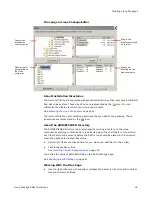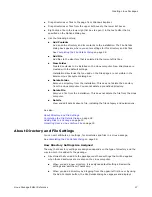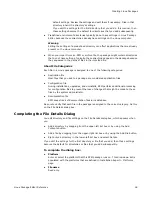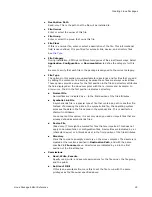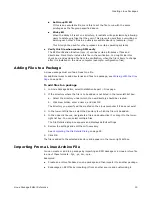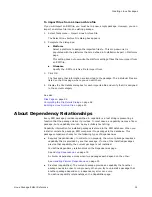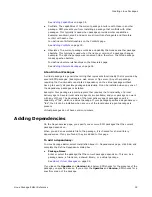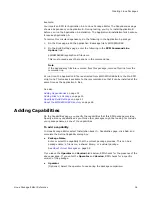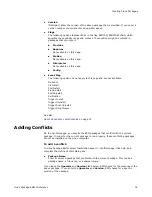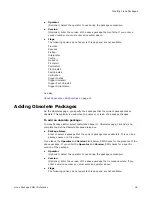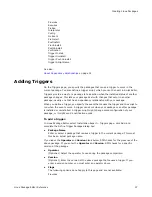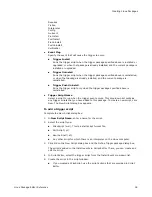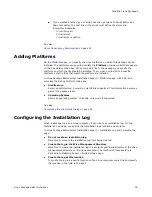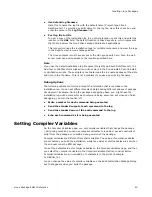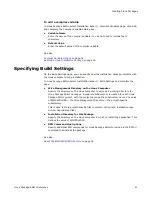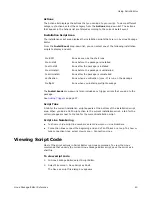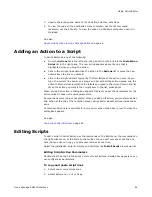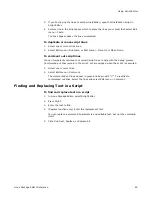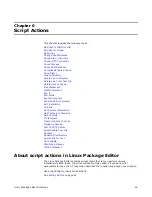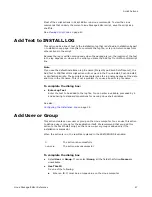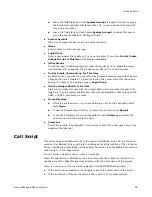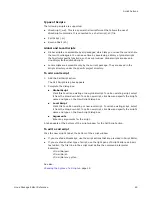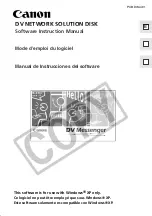
Linux Package Editor Reference
40
Creating Linux Packages
z
Use default log filename
Mark this to name the log file with the default name (Project-Type-Client-
DateTime.txt). To provide a specific name for the log file, clear this check box and
enter the name in the Log filename field.
z
Post log file to URL
To post a copy of the installation log to a network location, mark this and enter the
location in the URL field. The default location is Wise Repository, which represents
the IIS Web server that runs Wise Package Studio Web applications.
This lets you manage the installation logs for multiple computers, and view the logs
in the Reports view in Linux Package Editor.
The Linux computer must have access to the URL you specify here. Also, the web
server must have write access to the location specified here.
Note
If you use the default installation log file name (Project-Type-Client-DateTime.txt), the
Add Text to INSTALL.LOG script action will not work in the Pre-Uninstall, Post-Uninstall,
or Verification scripts. Those scripts cannot determine the log name because of the date
and time in the file name. This is not a problem if you use a specific log file name.
Debug Options
The following options control the amount of information that is recorded in the
installation log. You can set different levels of detail during different phases of package
development. Example: During the package debugging phase, you might have the
installation log write a marker for each command being executed, but when you finish
debugging, you turn that option off.
z
Write a marker for each command being executed
z
Send the standard output of each command to the log
z
Send the standard error of the each command to the log
z
Echo each command as it is being executed
Setting Compiler Variables
On the Compiler Variables page, you set compiler variables that change the package
(.SH) during compile. You can use compiler variables to include or exclude portions of
script from the package or to build a debug version of the package.
Compiler variables are different from shell variables. The values of compiler variables
are set before you build the installation, while the values of shell variables are set when
the end user runs the RPM package.
You set the default value of compiler variables on the Compiler Variables page, and then
you select the compiler variables in the Compiler Variable If action in Script Editor.
Compiler variables are surrounded by % characters in the script. (Example:
%_DEBUG_%.)
You can change the value of compiler variables on the Build Installation Package dialog
box that appears when you build the package.

